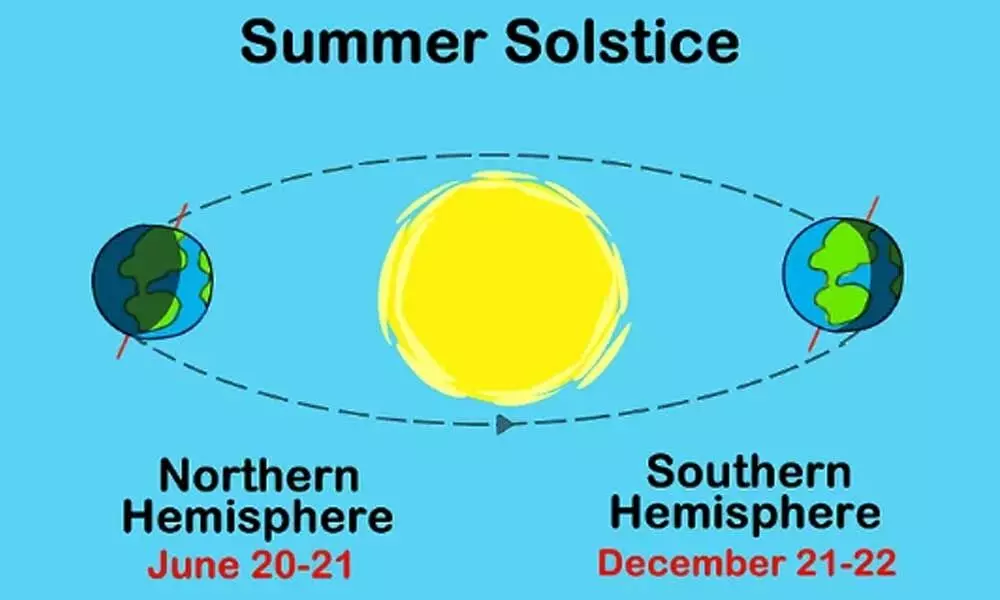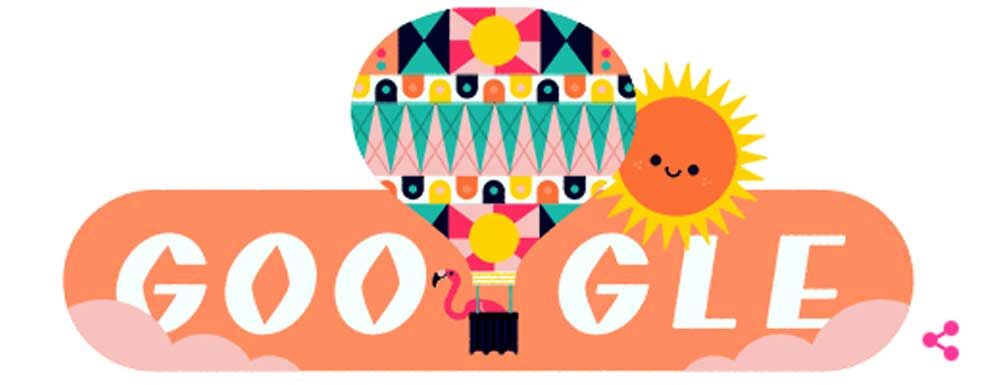Summer Solstice Solar Eclipse 2020: Etymology, occurrence and why it's so special

We all are prepared to witness the first annual solar eclipse of 2020 on June 21. The festival of the summer solstice also falls on the same day. The summer solstice is the longest day of the year for people living in the northern hemisphere.

Google, with its doodle, marked the beginning of summer in the northern hemisphere. The doodle demonstrates a flamingo in a hot air balloon on a sunny day. The beginning of the season marks the end of the spring. The summer solstice is the longest day of the year; this falls in June every year
Etymology of Solstice
The word 'solstice' is originated from the Latin word solstitium, "Sol" mean Sun and "Stit" means stationary or stopped. Solstice literal meaning is the point at which the Sun seems to stop or stationary. Solstice denotes how the Sun looks like to have 'stopped' or 'paused' in the sky on this day.
Summer Solstice Solar Eclipse 2020: Occurrence
When the Sun reaches its highest point in the Northern Hemisphere, the summer solstice occurs. In other words, when the Sun shines overhead at the Tropic of Cancer, the summer solstice occurs. On this day the North Pole is titled closet to the Sun. The areas of the north of the equator receive direct sunlight on the earth makes the days longer, and nights shorter. Every year the summer solstice occurs between June 20 and 22.
Why is summer solstice solar eclipse special?
The last time this day occurred was 38 years ago that was on June 21, 1982, after that it happened on June 21, 2001, that is 19 years ago. Now, this year one will occur on June 21. Later it is expected to occur in the year 2039 – yes, you are right – on June 21. It is unique because it is very rare.


